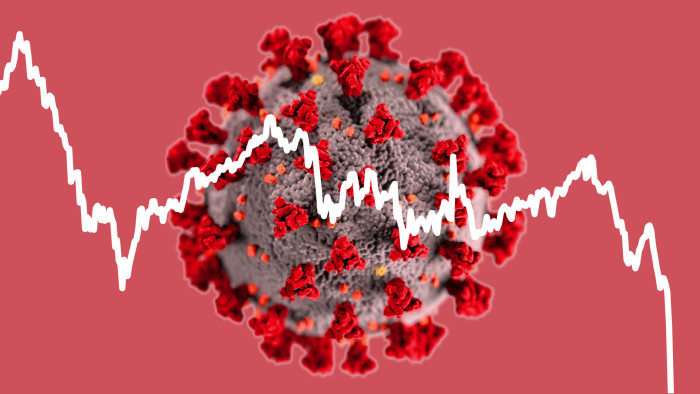Sanofi urges Europe to add vaccine manufacturing capacity

Roula Khalaf, Editor of the FT, selects her favourite stories in this weekly newsletter.
Sanofi has warned that Europe lacks the vaccine manufacturing capacity to cope with pandemics like the coronavirus, and called for a government agency dedicated to response planning as in the US.
Paul Hudson, chief executive of the French drugmaker, told the Financial Times that the outbreak has brought the issue of national sovereignty of healthcare systems “sharply into focus”.
Governments have imposed export controls on medical supplies including masks and ventilators since the outbreak began. On Sunday, German officials were seeking to stop a biotech company working on a vaccine in the country from moving research to the US amid fears Washington may seek a monopoly on any breakthrough in the fight against the disease.
In recent discussions with European health officials, Mr Hudson and David Loew, who heads Sanofi’s vaccines unit, urged policymakers to create an equivalent of the US government’s Biomedical Advanced Research and Development Authority. It works with industry to procure and develop treatment against pandemic influenza and emerging diseases.
“You have to decide where you want cost, quality and continuity of supply to be over the long term,” said Mr Hudson. “It doesn’t have to be wildly different than today but you have to start thinking about sovereignty.”
Before the coronavirus outbreak Sanofi, the world’s fourth-biggest vaccine maker by revenue, had begun adding manufacturing capacity in the US following a government request.
“They want to make sure that they have inventory for their citizens,” said Mr Hudson, referring to Barda. “We have to be a little bit more like that in Europe.”
The pandemic has caused some pharmaceutical and medical supplies executives to consider whether the offshoring of production in pursuit of cost savings has gone too far.
Coronavirus business update

How is coronavirus taking its toll on markets, business, and our everyday lives and workplaces? Stay briefed with our coronavirus newsletter.
Some 60-80 per cent of the world’s active pharmaceutical ingredients are produced in India and China, according to industry groups, and some were barred from export during the outbreak. Sanofi is seeking to remedy that issue by spinning out its European pharmaceutical ingredients unit by 2022 in a bid to expand.
“In a crisis situation as we can see now, you can’t even get masks,” said Mr Loew. “I would encourage the European Commission to start thinking about where will we sort, midterm, the capacity that we want to have. Today we don’t have enough installed capacity on European soil.”
Sanofi has three vaccine factories in France and three in the US. But none of its European facilities can make vaccines using novel recombinant DNA technology, which is now being tested for coronavirus vaccines.
Barda has jumped into action on the coronavirus, teaming up with drugmakers including Sanofi on vaccine research and on diagnostic tests.
Public-private partnerships are necessary for new viruses with pandemic potential because companies often have to start work without knowing what the market will be. Barda often pledges to buy the vaccines even if the pandemic fades, as Zika and Ebola did.
With roughly a dozen companies racing to develop a coronavirus vaccine, experts warn it will take at least 18 months for one to be ready given the time involved in clinical trials.
Mr Loew said Sanofi was aiming to have an experimental version of a vaccine available in six months, begin trials in a year, and hoped for approval in two to three years. A team of 60 scientists is on the task.
But Mr Loew cautioned that Sanofi needed more time to determine whether to throw major resources behind the vaccine.
“The coronavirus could become a seasonal thing, like flu. It could die down in a couple of months. We simply don’t know and the epidemiology is also not completely clear,” he said.
Mr Loew said it was far too early to discuss pricing, but pushed back against the idea that vaccines developed in part with public money should be free or cheap: “Nobody is going to embark as a large company if there is not a certain return that you can get for your investment and the risks you have been taking.”
Jimmy Whitworth, a professor at the London School of Hygiene & Tropical Medicine, backed the concept of a European Barda, adding: “We are increasingly vulnerable to a narrowing number of manufacturers . . . the more people are able to manufacture new therapies, new vaccines and so on, the better prepared we will be.”
Read more about the impact of coronavirus
- The latest figures as the outbreak spreads
- How countries around the world are battling coronavirus
- How dangerous is the coronavirus and how does it spread?
Subscribers can use myFT to follow the latest ‘coronavirus’ coverage
Comments